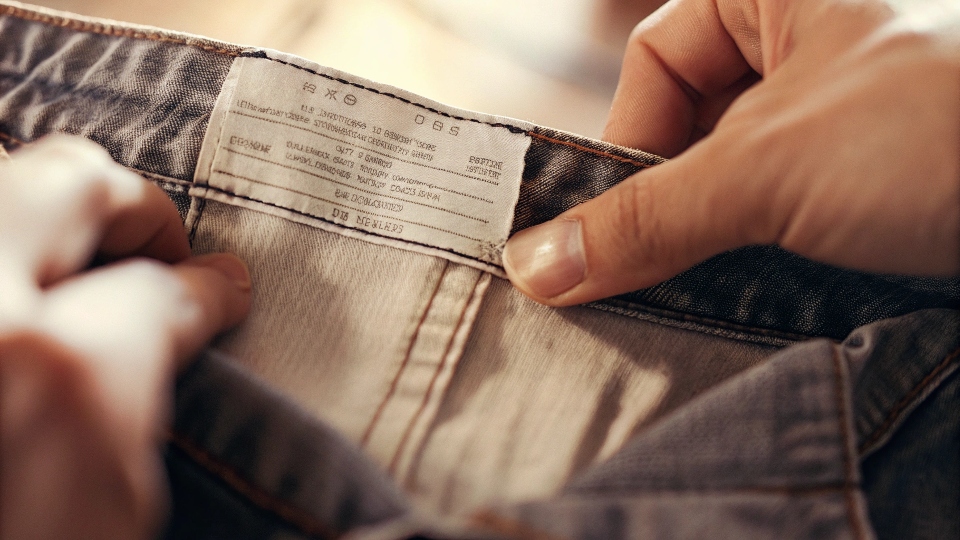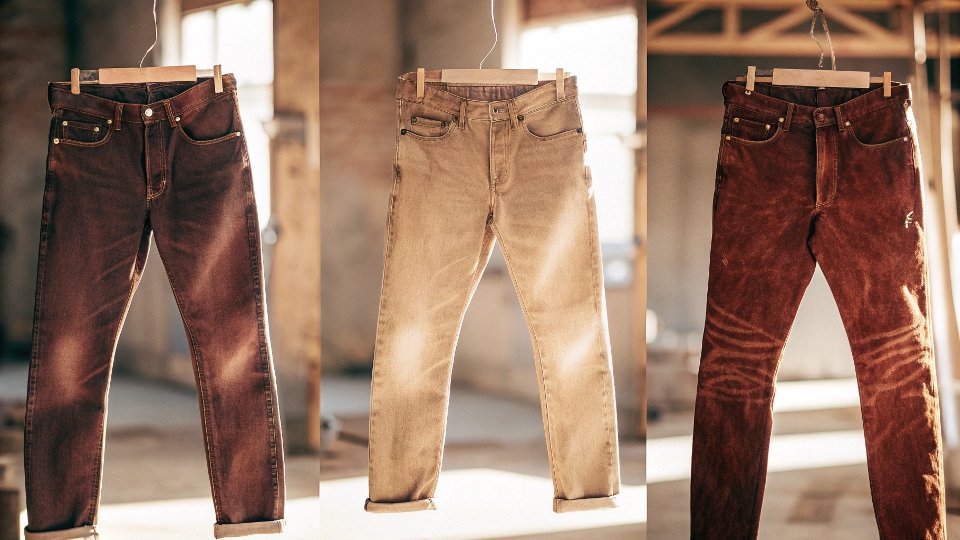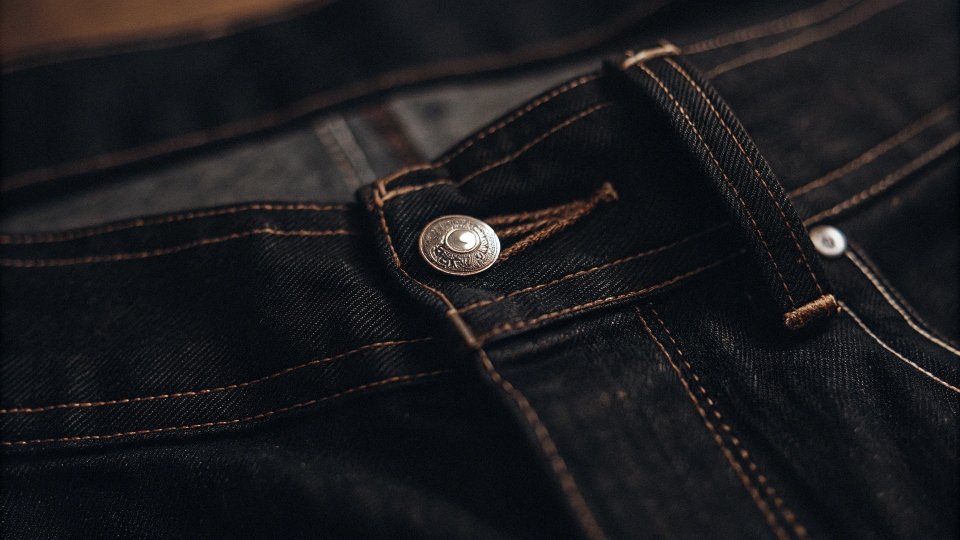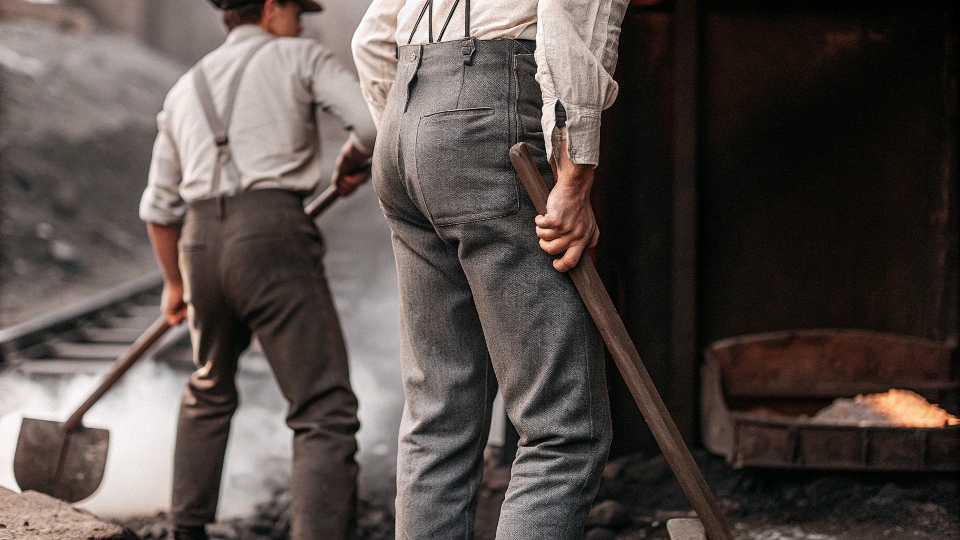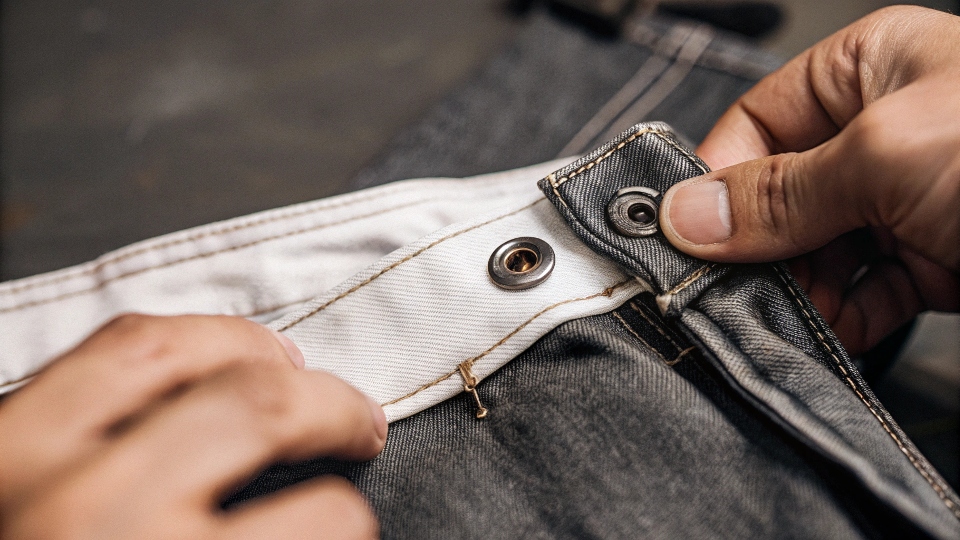You see a lesser-known brand like Buda Jeans Co.1 and hesitate. You want a good deal, but you're afraid of wasting money on a product that will look cheap and fall apart quickly.
The quality of Buda Jeans Co., like many modern brands, can be inconsistent. Customer reports suggest that quality varies2 greatly depending on the specific manufacturer, so checking the production details on the label before you buy is essential.
Your insight about checking the manufacturer is a perfect example of what it means to be a smart shopper today. As someone who runs the DiZNEW denim factory3, I can tell you that a brand name is no longer a simple guarantee of quality.
Many brands use multiple factories, and the difference in output can be huge. One factory might use premium materials4, while another cuts corners to lower costs.
This specific question about Buda Jeans Co.1 opens up a much bigger and more important conversation: what really makes a pair of jeans good, and how can you spot quality regardless of the name on the back pocket?
Which jeans brand is the best quality?
You want to buy a pair of jeans that will last for years, not just a season. But with every brand yelling that they are the best, it's impossible to know who is telling the truth.
There is no single "best" quality jeans brand for everyone. "Best" depends entirely on what you value most, whether it's raw denim for custom fades (A.P.C.), extreme durability (Levi's), or sustainable production5 (Nudie Jeans).
In my factory, we work with all kinds of brands, from heritage labels to cutting-edge designers like Dean. I’ve learned that "quality" is a mission with different paths.
Some brands define quality through history and toughness. Others define it by using rare fabrics or eco-friendly methods. The "best" brand for you is the one whose mission aligns with your needs.
Here’s a simple way to think about it:
| If You Value... | Look for Brands Like... | Why They Excel |
|---|---|---|
| Heritage & Durability | Levi's, Lee, Wrangler | They have over a century of experience in making tough, reliable workwear. Their classic models are built to last. |
| Raw Denim & Fading | A.P.C., Nudie Jeans, Momotaro | They use premium raw selvedge denim that starts stiff and molds to your body, creating beautiful, personal fade patterns over time. |
| Sustainability & Ethics | Patagonia, Nudie Jeans | They focus on organic cotton, fair labor practices, and innovative water-saving techniques like ozone washing and laser finishing. |
| Comfort & Modern Fit | DUER, Revtown | They specialize in technical denim, blending cotton with performance fibers for stretch, moisture-wicking, and everyday comfort. |
What is the most luxurious jeans brand?
You see jeans with price tags of $500, $1000, or even more. You can't help but wonder what could possibly make a pair of denim pants cost that much. Is it just marketing hype?
Luxury in jeans is defined by exceptional materials, meticulous craftsmanship, and small-batch exclusivity. Brands like Jacob Cohën or Kiton use rare Japanese selvedge denim, hand-sewn details, and precious metal hardware, justifying their premium price.
The price of luxury jeans6 comes from time and artistry. A designer like Dean might specify a very particular type of denim from a small, family-owned mill in Okayama, Japan.
These mills use old, slow shuttle looms that produce only a few meters of fabric a day, but the texture and quality are unmatched. Then, instead of being sewn on an automated line, each pair is crafted by a single artisan who might add hand-hammered rivets or chain-stitch the hem on a vintage machine.
In my factory, fulfilling these kinds of requests is the ultimate challenge. It's not mass production; it's a form of wearable art. The cost reflects the hundreds of tiny, deliberate decisions made to create something truly exceptional.
Who were the original pioneers of jeans?
We all own jeans, but we rarely think about where this universal garment came from. Who invented them, and what made them so revolutionary that they are still popular over 150 years later?
Levi Strauss & Co. is the original jeans company, partnering with tailor Jacob Davis to patent the first riveted blue jean in 1873. The "Big 3" American heritage brands—Levi's, Lee, and Wrangler—are the pioneers who shaped modern jeans.
The story of jeans is the story of American ingenuity. It wasn't just one company, but a few key players who turned a simple work pant into a global icon. Their rivalry pushed them to innovate, and we still see their inventions in the jeans we wear today.
- Levi's (The Original): Levi Strauss was a San Francisco merchant who supplied goods to gold miners. A tailor named Jacob Davis came to him with an idea: use metal rivets to make the pants stronger at stress points like pocket corners. They patented the idea together in 1873, and the "blue jean" was born.
- Lee (The Competitor): Lee started by making workwear for farmers and railroad workers. They saw what Levi's was doing and aimed to improve the design. They introduced the "Union-All" coverall and, most famously, the zipper fly, which they called the "Whizit" in the 1920s.
- Wrangler (The Cowboy's Choice): Wrangler came later and focused specifically on the rodeo market. They hired a famous tailor to design jeans for cowboys. This led to innovations like "broken twill" denim, which doesn't twist around your leg, and flat rivets that wouldn't scratch a horse's saddle.
| Brand | Founded | Key Innovation | Original Target Audience |
|---|---|---|---|
| Levi's | 1853 | Copper Rivets | Miners & Laborers |
| Lee | 1889 | Zipper Fly | Farmers & Industrial Workers |
| Wrangler | 1947 | Broken Twill Denim | Cowboys & Rodeo Riders |
How to tell if jeans are good quality?
You're standing in a store, holding a pair of jeans that looks great on the hanger. How can you know if they are well-made and will last, or if they'll shrink, stretch out, and fade poorly?
To tell if jeans are good quality, ignore the price tag and check three things: the fabric's weight, the density of the stitching, and the sturdiness of the hardware. Good jeans feel substantial, have tight seams, and use reliable zippers and buttons.
As a factory owner, I can spot quality in seconds. You can too, if you know what to look for. Think of yourself as an inspector. You just need to check a few key areas to see if the brand invested in making a durable garment. This is a skill that will save you money and frustration in the long run.
Here is your simple, in-store quality checklist:
1. Feel the Fabric
Pick up the denim and feel its weight. It should feel solid and dense, not thin orpapery. Even stretch jeans should have a substantial feel. Rub the fabric between your fingers. It should feel strong, not overly soft and weak as if it has been pre-distressed to death.
2. Inspect the Stitching
Look at the major seams, like the one running down the inside of the leg. The stitches should be small, tight, and consistent. A higher number of stitches per inch means a stronger seam. Check for "bar tacks"—thick, reinforcing stitches—at stress points like the corners of the back pockets and the bottom of the belt loops.
3. Test the Hardware
The hardware is a huge quality indicator.
- Zipper: Pull it up and down. It should be smooth. Look for the letters "YKK" stamped on the pull. This is the gold standard for reliable zippers.
- Button and Rivets: The main button should feel solid and be securely attached. The small metal rivets on the pockets should be firmly in place and preferably have the brand's name stamped on them, which shows attention to detail.
Conclusion
Judging a brand name alone is unreliable. To find great jeans, you must become your own quality expert. By checking the fabric, stitching, and hardware, you can make a smart purchase every time.
-
Explore insights on Buda Jeans Co. to understand their quality and production standards. ↩ ↩
-
Learn about the factors affecting jeans quality and how to choose wisely. ↩
-
Get an insider's view of denim production and what makes quality jeans. ↩
-
Find out what materials define high-quality jeans and why they matter. ↩
-
Explore brands that prioritize sustainability and ethical practices in denim. ↩
-
Delve into the world of luxury jeans to see what justifies their high prices. ↩

